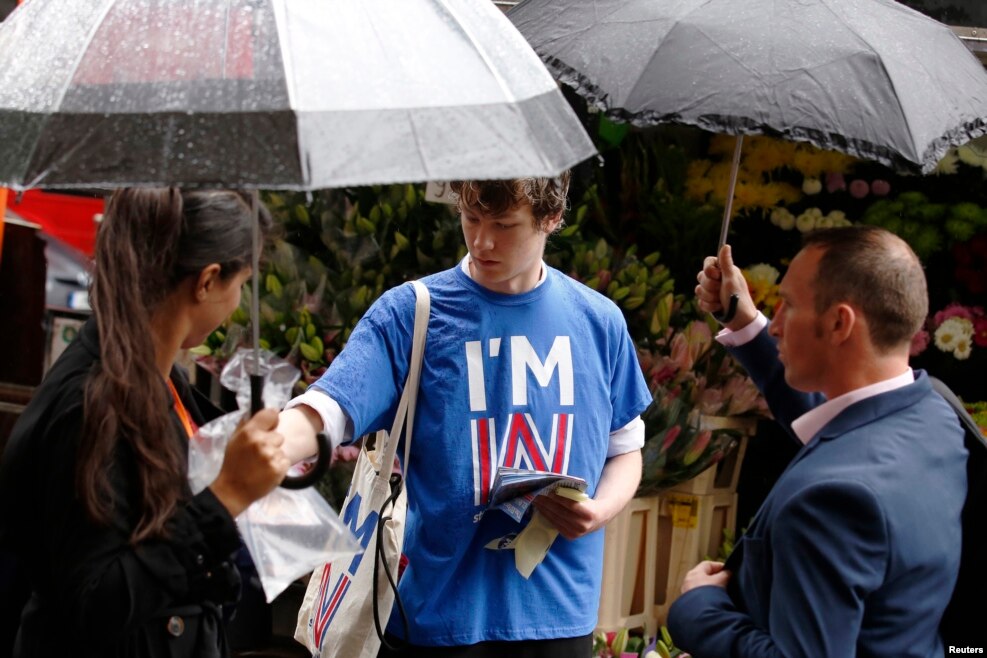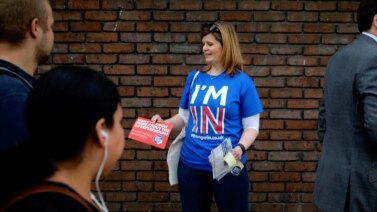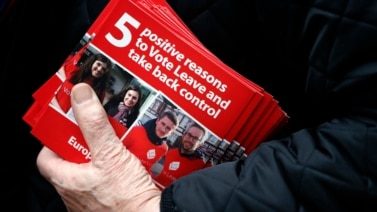
The President of the European Union says members must deal with dissatisfaction in Europe whether Britain decides to leave the EU or not.
Donald Tusk spoke Monday in Lisbon, Portugal. According to the Associated Press, he said, "Whatever its result is going to be, we must take a long, hard look on the future."
He said, "we would be foolish if we ignored such a warning signal as the UK referendum."
The popular vote, or referendum, will take place on June 23. British citizens will vote on whether their country will remain an EU member.
Dissatisfaction in the EU has been growing every year among long-time members, such as the Netherlands and France. New eastern European members, such as Poland and Hungary, have also seen anti-EU feelings grow.
Tusk said, "There are more signals of dissatisfaction with the Union coming from all of Europe, not only from the UK."
The EU's biggest economies, Germany and France, hope that British citizens will vote to remain in the union.
German Foreign Minister Frank-Walter Steinmeier said Europe would in his words, “lose more than just a country. We would be losing the history and traditions of Great Britain in the European Union."
He said, "Europe would be much poorer if Britain leaves."
France's Foreign Minister spoke to reporters at an EU foreign ministers' meeting in Luxembourg Monday. Jean-Marc Ayrault noted the importance of the vote for all of Europe, not only Britain.
In his words, "all Europeans are looking to the British people, because we have - history reminds us - a long life in common."
British Foreign Secretary Philip Hammond also spoke Monday. He said "there will be no going back" if Britain decides to leave the European Union.
He said Britain could never rejoin the EU except on terms that would not be acceptable to the country.
He said such terms could include sharing a common EU currency or taking part in the Schengen Agreement for passport-free travel.
British public opinion appears to be turning toward staying in the EU, especially after the murder last week of British lawmaker Jo Cox. The Labour Party politician had been an opponent of the “Brexit” effort and a supporter of refugees and immigrants.
The marketing company ComRes in London told VOA that support between the sides is about equal. However, the head of the company, Andrew Hawkins, said the movement to “leave” lost some support after the killing.
Both sides in the referendum stopped campaigning after the deadly attack.
I'm Caty Weaver.
The Associated Press reported this story from London with additional reporting by Luis Ramirez for VOA News. Mario Ritter adapted it for VOA Learning English. Caty Weaver was the editor.
Words in This Story
referendum - n. a popular vote on a law that usually deals with a single issue
xenophobia - n. a state of fear or anger directed at foreigners
poster - n. a large printed message put in a public place to gain attention for a cause or as an advertisement
remind - v. to make (someone) think about something again : to cause (someone) to remember something
currency - n. the money that a country uses : a specific kind of money


